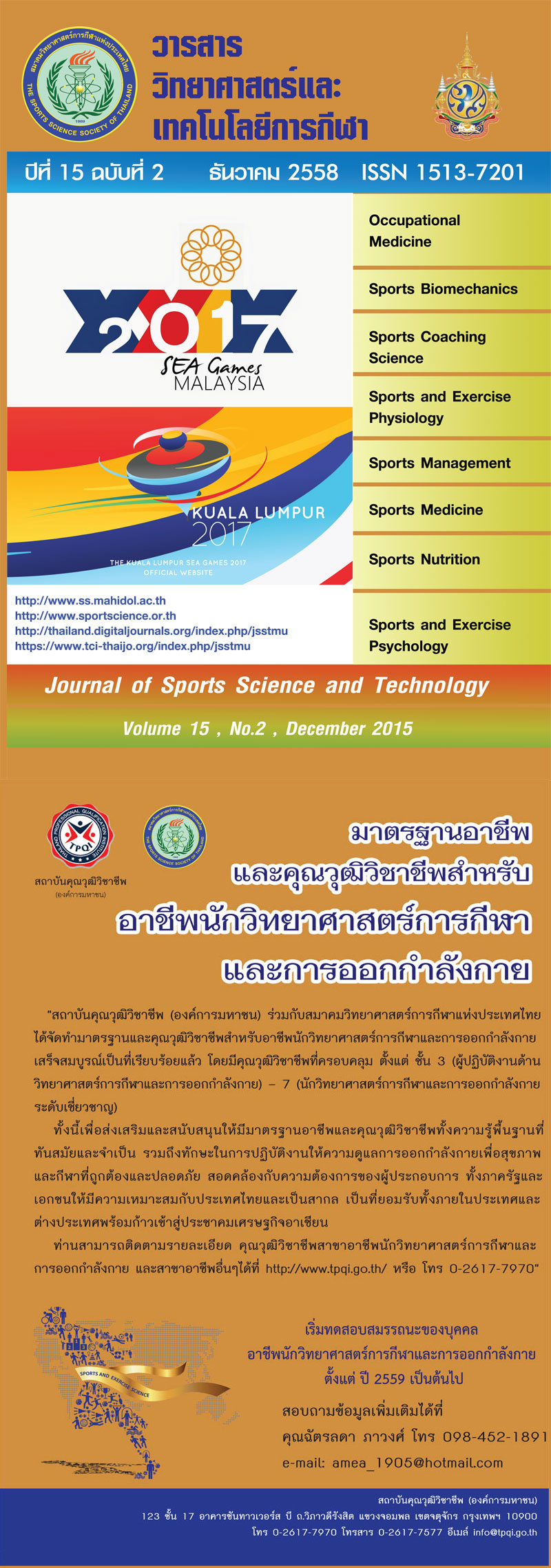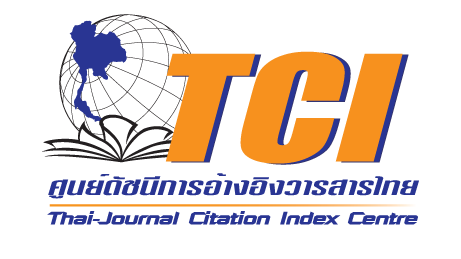SUFFICIENT ECONOMY PHILOSOPHY PROCESS AND EXERCISE PERCEPTION OF FEMALES AT COMMUNITY, UBON-RATCHATHANI PROVINCE
Keywords:
Sufficient Economy Philosophy, Exercise, Physical Activity.Abstract
The Sufficient Economy is a philosophy based on the fundamental principle of Thai culture. It is a method of development based on moderation, prudence, and social immunity, one that uses knowledge and virtue as guidelines in living. Significantly, there must be intelligence and perseverance which will lead to happiness in leading one’s life and happiness associated with health, current health recommendations focus on four things: avoid obesity, eat right, don’t smoke, and exercise. The processes of sufficiency economy according to King Bhumibol’s Sufficiency Economy Philosophy and exercise perception are the keys to developing the full potential of the individual and is regarded by policy makers as instrumental in the crisis.
The objectives of this qualitative research design( content analysis ) were to describe the processes of females at community organization collaboration centers at Bungwai Sub-District, one of the rural areas, Ubon-Ratchathani Province and to describe the exercise perception of females at community organization collaboration centers .
Methodology:
This content analysis used focus group and many documents from outstanding community organization collaboration centers’ documents recorded by 27 researchers of the association of researchers in 2510-11. The documents consisted of observational, in -dept-interview, focus-group, non-participant observation and Bungwai-Sub-District documents.
Data were analyzed by content analysis and sought regarding critical concerns of Sufficiency Economy Philosophy and females’ exercise perception for health.The instruments were : Check list, recording schedule, In-depth Interview guidelines ( semi structure questions), Focus group discussion questions guidelines and documentary synthesis guidelines .
270
Results: Thematic analysis of all documents covered 4 major findings of exploring the processes of community at community organization collaboration centers according to King Bhumibol’s Sufficiency Economy Philosophy as followed.
The themes consisted of : 1) Understanding the meaning of this philosophy : ‚taking middle-path into consideration using technology appropriately, making reasonable decisions based upon knowledge should be built in order to take full benefit and cope up with any risk and eliciting good morals or ethics in proper management underpinning strength together with a proper value system as well as maintaining immunity against the vigorous-waves of change‛ . 2). Doing for upgrading by collaboration and commitment . 3). Undertaking and eliciting activities that came from the mindset which are derived from understanding and teaching the sufficient economy philosophy to next generation . However, datum was one of the limitations in some- part from youths and males. Their exercises perceptions were the form of physical activities but these were not planned , structured and done to improve at least one aspect of physical fitness. Their exercises ignored the strength, flexibility or aerobic endurance. Females’ physical activities included many activities, these were parts of daily life. Household, workplace and lifestyle physical activities were three of the most common types of physical activities of females at community .
(Journal of Sports Science and Technology 2015; 15(2); 269-276)







